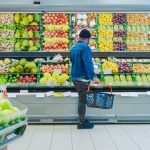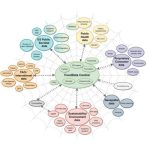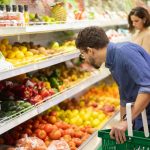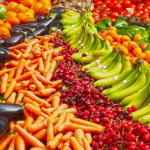Stories

The growing struggle to afford groceries in Washington State
February 13, 2025
Groceries were the most common expense reported as hard to afford in the past month, followed by housing, according to the latest WAFOOD survey. Rising food prices and the expiration of pandemic-era assistance programs have intensified economic pressures on households statewide.
Read more
Jennifer Otten elected president of Agriculture, Food, and Human Values Society
June 10, 2024
University of Washington faculty member Jennifer Otten has been elected the incoming president of the Agriculture, Food & Human Values Society (AFHVS), a professional organization which provides an international forum to engage in the cross-disciplinary study of food, agriculture, and health, as well as an opportunity for examining the values that underlie various visions of...
Read more
Adam Drewnowski named 2024 Wilbur Olin Atwater Memorial Lecturer
March 22, 2024
The United States Department of Agriculture, Agricultural Research Service (ARS), has named Adam Drewnowski, professor of epidemiology at the University of Washington School of Public Health the 2024 Wilbur Olin Atwater Memorial Lecturer. The Wiblur Olin Atwater Memorial Lecture is a forum for a presentation on a scientific topic, trend, issue, or policy of the lecturer’s...
Read more
New paper illustrates complexity of food systems data and how to close gaps
October 11, 2023
How do we support and transform sustainable food systems while maintaining and improving the nutritional status of the population? This question has become a global public health priority for international organizations, funders, academics, and policymakers. Because food systems data are so transdisciplinary and intersect many domains such as health, nutrition, economics, society, and environment, creating...
Read more
Low-income Washington state households still struggling with food insecurity as pandemic protections end
February 23, 2023
Affording food is such a challenge in Washington state that residents who experience food insecurity say their grocery bills are their biggest source of financial stress, more so than paying for rent or utilities. That’s one of the findings of a food survey of Washington residents from December 2022 to January 2023, run by researchers...
Read more
Nutritional Sciences faculty joins Washington State Food Policy Forum
January 10, 2023
Jennifer Otten, a faculty member and food systems scholar in the University of Washington School of Public Health will begin a new appointment in January 2023 as a member of the Washington State Food Policy Forum, a cross-sector group formed by the WA State Legislature in 2016 which makes recommendations for improving the food system...
Read more
UW and partners launch project examining sustainability in animal agriculture
October 17, 2022
Researchers from the University of Washington School of Public Health (UW SPH), together with collaborators from the Washington State University (WSU) Food Systems program, the University of Minnesota Institute on the Environment, and the Washington D.C.-based Agriculture & Food Systems Institute, are embarking on a multi-year interdisciplinary effort investigating the intersection of animal agriculture, environmental sustainability,...
Read more
Introducing food system diplomacy, a method to positively influence the health of people and the planet
October 5, 2022
By Kate Stringer When the global food system is thrown into crisis — whether that’s due to a pandemic, a war, a drought — often the first concern is economic fallout. But prioritizing the needs of commerce often comes at the expense of other interests: occupational health, environmental health, and social equity. That’s why food...
Read more
Article authored by UW professor highlights food insecurity root causes
August 12, 2022
This September, the White House will convene a conference on hunger, nutrition, and health. Leading up to the conference, the White House is organizing several listening sessions across America to hear firsthand from people impacted by food insecurity and to collect ideas about how to end hunger and hunger-related diseases and disparities. Ahead of this...
Read more
Survey of Washington state tribal communities illustrates how pandemic has exacerbated food disparities
December 7, 2021
Project finds barriers to traditional foods access and major disparities in food insecurity among Washington state tribal communities during the COVID-19 pandemic A recent survey of American Indian/Alaska Native (AI/AN) individuals sheds further light on the disparate impacts of the COVID-19 pandemic among Washington State tribal communities. The project, the WA Tribal Food Survey (WATRIBAL),...
Read more